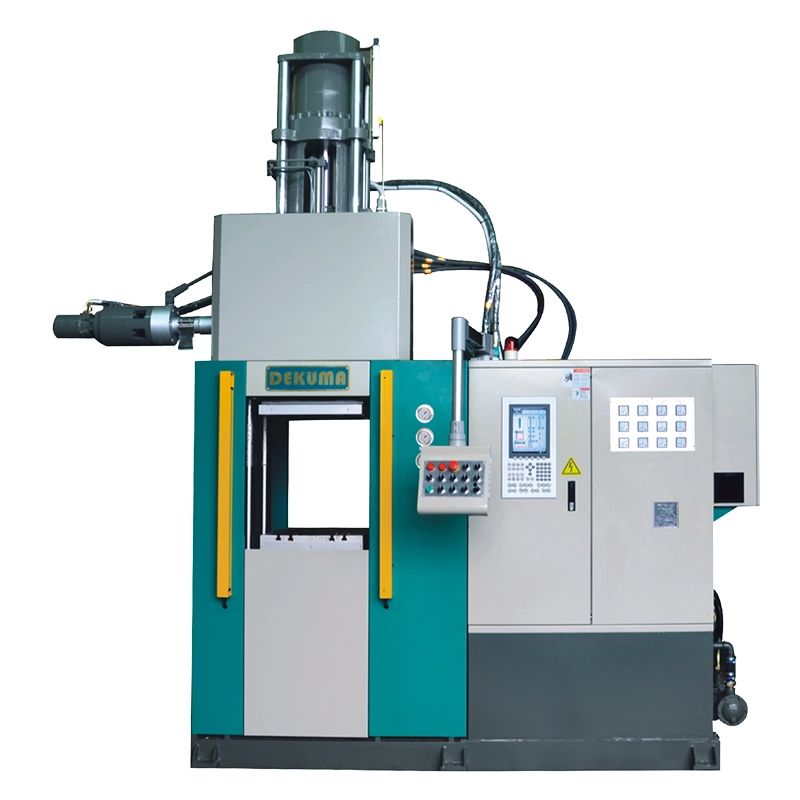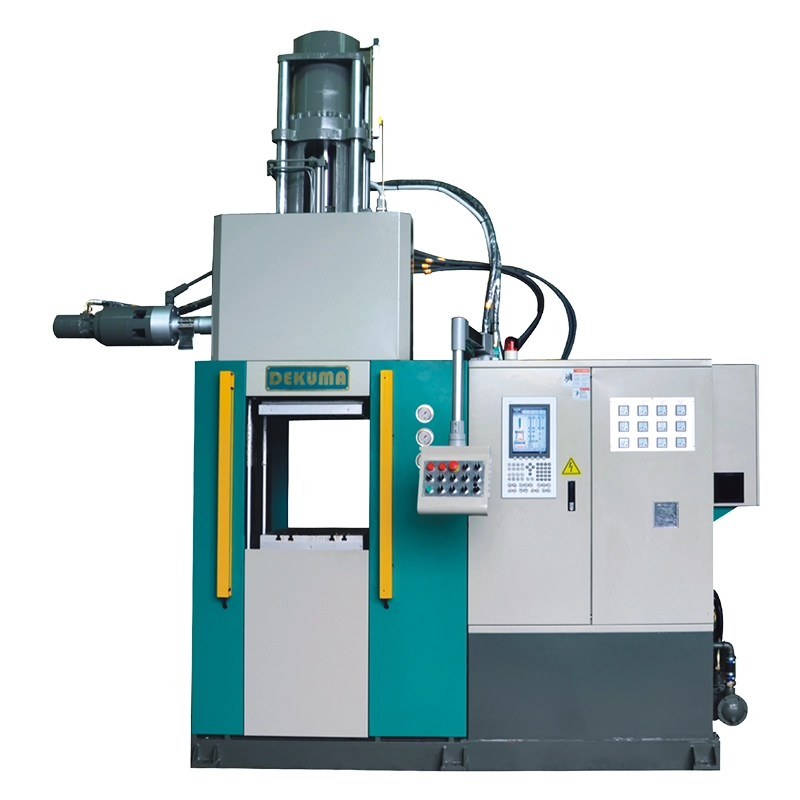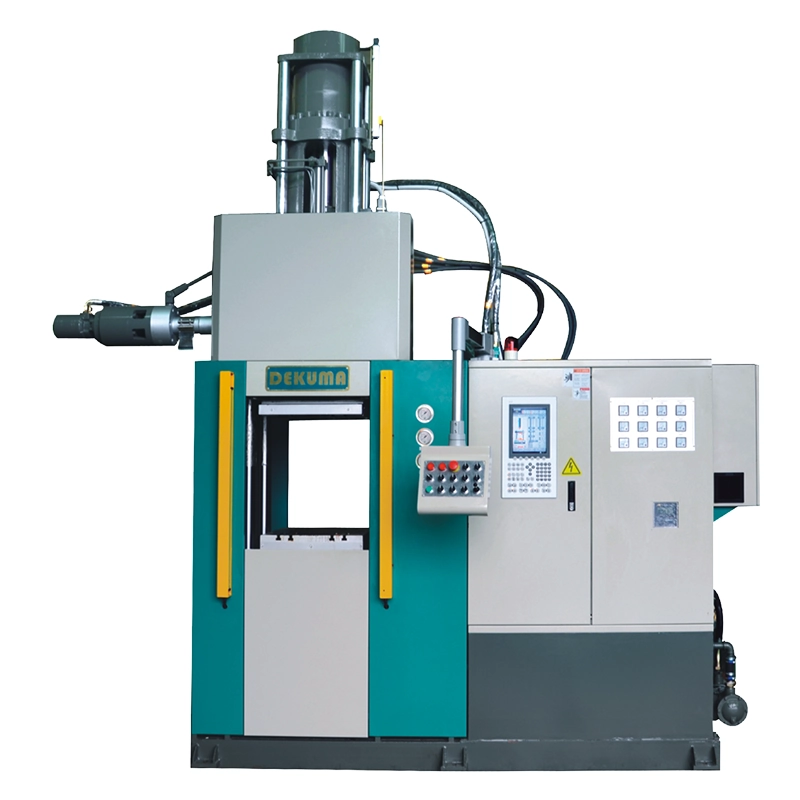A complete rubber product molding process involves multiple steps, with the oil temperature circuit being a crucial element in ensuring high-quality rubber parts.
An effective oil temperature circuit design must achieve leak-proof operation, smooth flow, and thorough heat exchange. This seemingly intangible detail, deeply embedded in the manufacturing process, reflects Dekuma’s commitment to reliability.

Before rubber material is injected into the mold and undergoes heating and vulcanization, it must first be transported by the screw and temporarily stored in the injection barrel. Effective temperature control during transportation and storage is critical. If the temperature is too low, it can cause feeding difficulties, poor flow, and surface marks. Conversely, if the temperature is too high, it may lead to scorching or premature vulcanization of the material. Proper temperature management, achieved through Dekuma’s temperature oil system, facilitates optimal transport, flow, and uniform temperature of the rubber material.
Typical components involved in the oil temperature circuit include the plasticizing barrel, injection barrel, and nozzle body. To ensure excellent thermal exchange performance, Dekuma implements three strict control measures throughout the production process: part inspection, process inspection, and final machine inspection.
For example, with the RV300 rubber injection molding machine’s barrel:
1.Part Inspection
During the inspection process, the temperature oil channels within the components undergo three rigorous checks:
- Leakage Test: Components are pressurized to 20kg for 10 minutes to ensure no leaks.
- Flow Test: An electric oil pump is connected to the internal temperature oil channel to pump kerosene and verify unobstructed flow and compliance with flow rate requirements.
- Internal Channel Check: During the inspection, attention is paid to any potential short circuits or blockages in the channels.
2.Process Inspection
- After assembling the injection unit, the entire temperature oil circuit, including the injection barrel and nozzle body, is subjected to leak and flow tests to prevent issues from progressing to the final assembly stage.
3.Final Machine Inspection
- During the final inspection, the machine undergoes 400 uninterrupted automatic dry cycles with all temperature oil circuits operating. Throughout this process, there should be no leakage, and visual checks ensure smooth return oil flow. Surface temperatures of the plasticizing barrel, injection barrel, and nozzle body are directly measured to confirm that heating and cooling rates meet design specifications.

Looking ahead, Dekuma remains committed to its core principles, upholding a “customer-first”approach, and continuously improving product quality and service levels. We also look forward to gaining more support and trust from our clients to advance the industry together.




